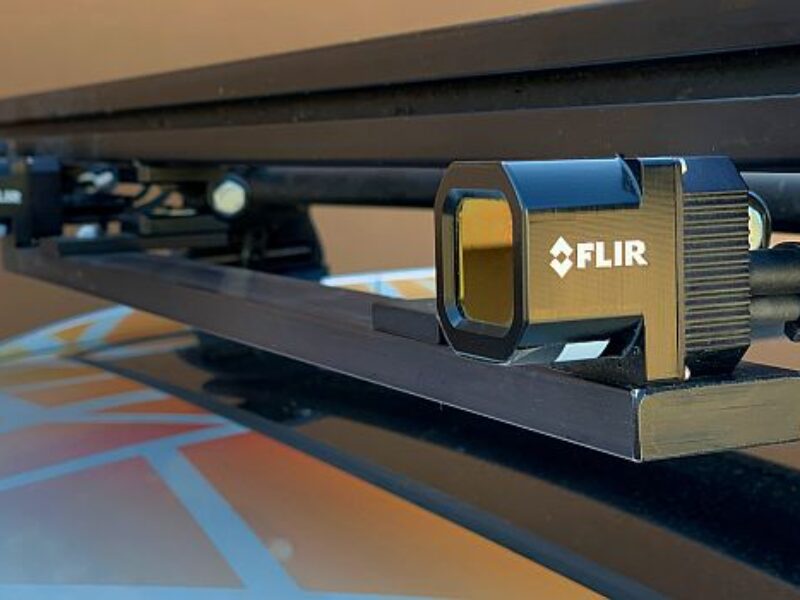
Thermal sensing coming to production Level-4 AV
The Veoneer system, says the company, will be the first in the industry to include multiple thermal sensing cameras that provide both narrow and wide field-of-view capabilities to enhance the safety of self-driving vehicles. Thermal sensing excels in driving situations where other sensor technologies are challenged, including low-visibility and high-contrast conditions such as nighttime, shadows, dusk, or sunrise; while facing direct sun or headlight glare; and in challenging weather conditions including fog and environmental conditions such as smoke.
With the ability to see up to four times farther than headlights at night, thermal sensors detect the heat given off by everything and offer additional data to the existing suite of AV sensors to improve reliability and redundancy. When combined with analytics, says the company, thermal sensing cameras can help detect and classify a broad range of common roadway objects and are especially adept at detecting people and other living things.
“As the automotive industry undertakes the enormous technical challenge of building safe autonomous vehicles, cutting-edge sensing technologies, including thermal, are needed to save lives and provide greater situational awareness in all conditions,” says Frank Pennisi, President, FLIR Systems’ Industrial Business Unit. “FLIR’s automotive-qualified thermal sensing cores are a key component of Veoneer’s thermal sensing cameras and systems, which have proven effective on hundreds of thousands of passenger vehicles to date. This selection shows the value of thermal sensing for self-driving applications, paving the way for future adoption by other automotive manufacturers.”
The company’s thermal sensing cores are also part of Veoneer’s fourth-generation thermal sensing system scheduled to launch next year. The company has been a key partner of Veoneer to support driver early-warning systems in vehicles from General Motors, Volkswagen, Audi, Peugeot, BMW, and Mercedes-Benz.
This latest contract, says the company, represents a new phase for FLIR and its thermal sensing technology for the benefit of autonomous, self-driving vehicles. The level-four autonomous production vehicle incorporating the company’s thermal imaging technology is planned for 2021.
Related articles:
Thermal imaging will make autonomous vehicles safer and more affordable
Thermal camera solution comes to consumer markets
Thermal camera targets automotive diagnosis applications
 If you enjoyed this article, you will like the following ones: don't miss them by subscribing to :
eeNews on Google News
If you enjoyed this article, you will like the following ones: don't miss them by subscribing to :
eeNews on Google News




